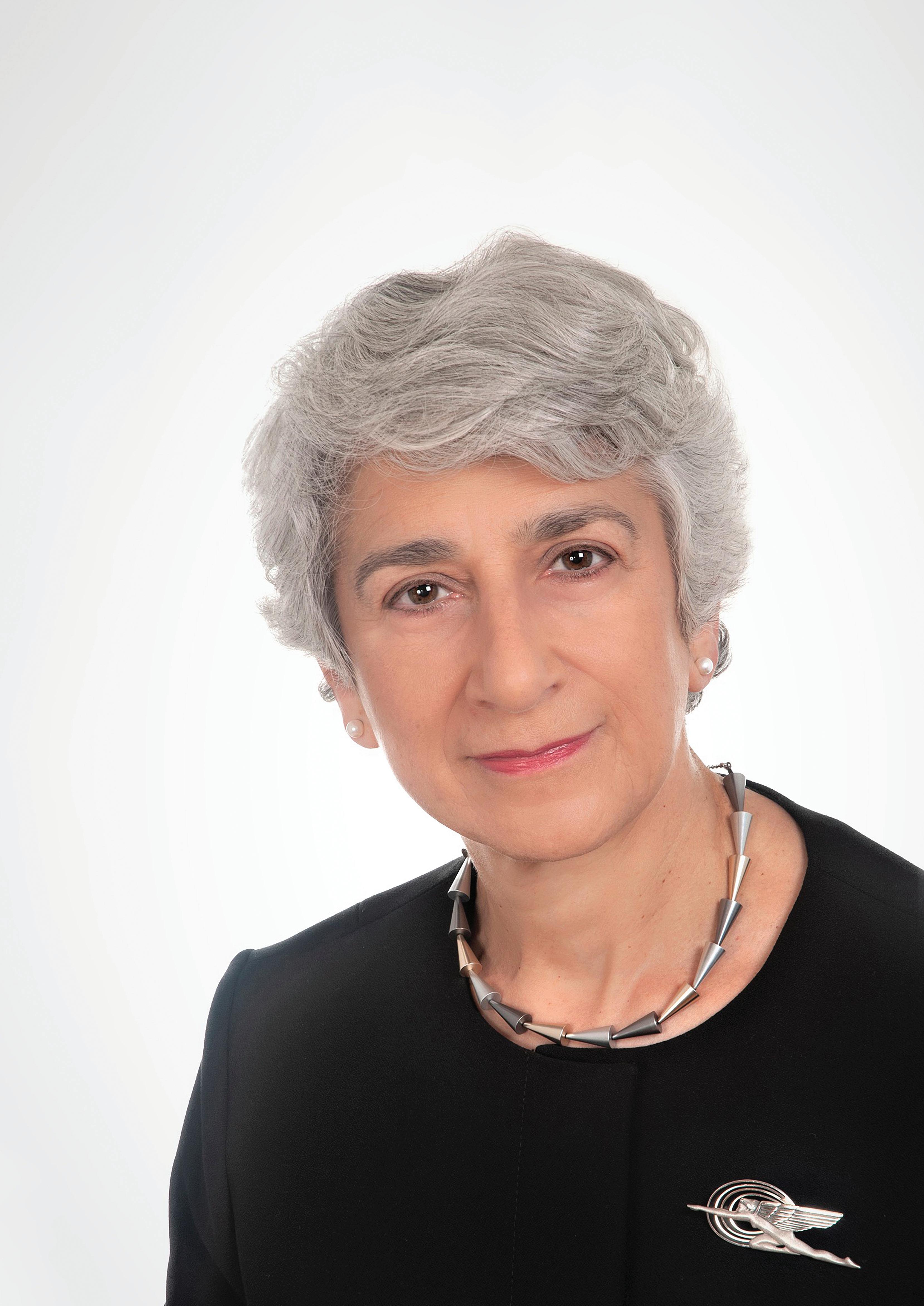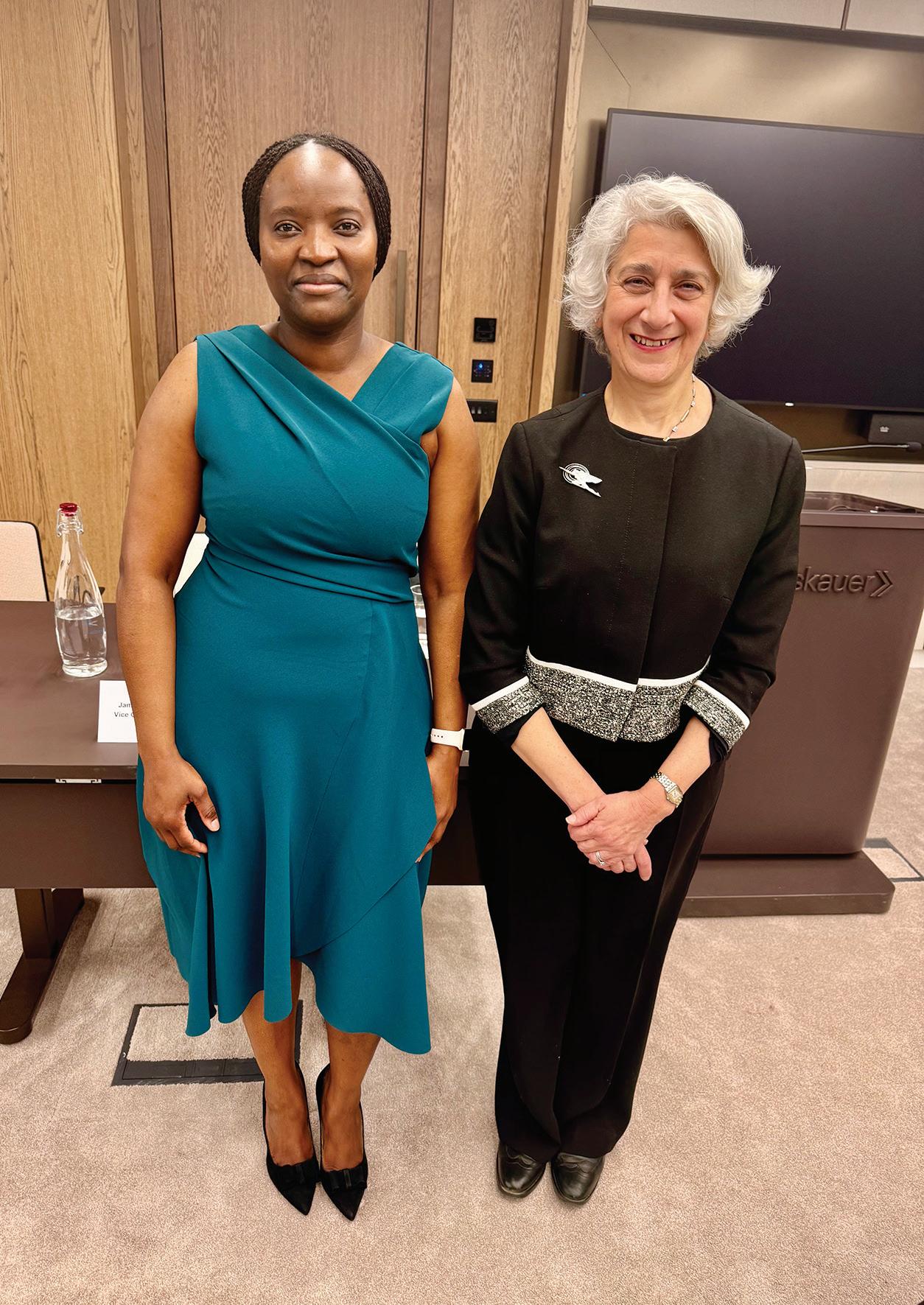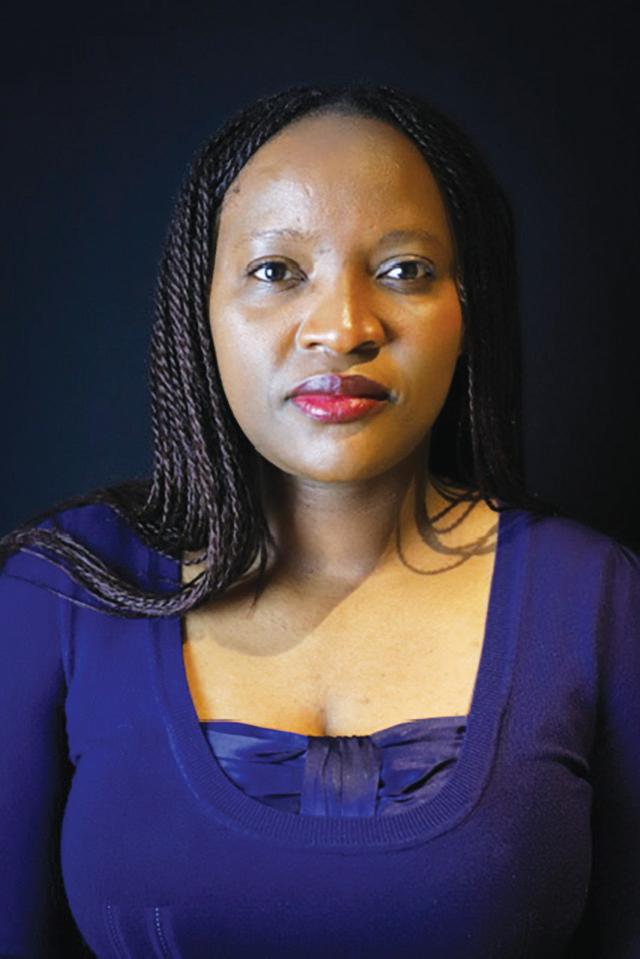
15 minute read
Interview with the Rt. Hon Lady Rose of Colmworth
Interview with
the Rt. Hon Lady
Rose of Colmworth

Charity Mafuba talks to The Rt Hon Lady Rose of Colmworth about her legal career and the importance of Senior Female Leadership in law. Currently, Lady Rose is one of two female judges of the Supreme Court.
Charity: You completed your degrees at Newnham College, Cambridge and Brasenose College, Oxford. What was your experience of studying law during that time?
Lady Rose: I really enjoyed law. The Cambridge undergraduate course is a very structured course, everybody goes to all the lectures, and they cover the syllabus, but there were a range of optional topics that I enjoyed studying.
I spent a lot of time in the library. It was hard work, but I think it taught me a lot of actual law and it's a very practical course as well. It's not just essay writing. It's little scenarios and then you have to say what advice you would give. So I think it does very much set you up to practice as a lawyer.
I was at Newnham, which was then and still is an all women's college, and we tended to have our supervisions together as a group. Because we didn't have a Director of Studies at Newnham at the time in my first year, the other faculty around the university kindly agreed to take us on and give us supervisions. So actually we were out and about a great deal. And it was a very nice cohort in the college and in the university more generally. Yes, I enjoyed law as an academic subject.
Charity: Were there many women completing legal studies during the late seventies?
Lady Rose: Yes, I mean I didn't have a sense that we were hugely outnumbered, though I suspect we were. The year I started at Cambridge, was the year that a lot of previously all male colleges took in women for the first time and also as I started my second year there were another whole group of colleges that became co-ed. So it was very much a process at that time.
I suspect we were very outnumbered, but I just don't remember being particularly affected by that at that stage. I then went to Brasenose, that had been one of the first Oxford colleges to go mixed and last year in 2024 they celebrated their 50th anniversary of having admitted women to the College.
Charity: What interested you in the Law?
Lady Rose: I've always found the law fascinating. I think, because it's very much addressing human problems. The law not only stops people from doing things, which is what most lay people think of the law, a criminal law or whatever, but it also facilitates people doing trade, doing commerce, getting married, adopting children - every aspect of life has to have rules to govern it, and I like that aspect of learning something which is really a reflection of the complexity of human beings.
This building for example, there were contracts to provide the lighting, to build the building. It's full of books, which were published. Everything that you look at has a whole bedrock of legal work behind it.
Charity: Particularly, practising as a Barrister instead of Solicitor?
Lady Rose: I always thought I would go to the Bar, I never really considered being a solicitor.
I'm not quite sure what it was that first attracted me to it. In fact, being a Barrister turned out not to be the right career path for me after a while, but I was very set on that at the start, and I think what I enjoyed about it was you really are focusing on a lot of legal issues. That's the sort of the interesting bit, really for me.

the culture was that everyone just completely ignored the fact that you were a woman
Charity: You were called to the Bar by Gray's Inn in 1984. Did you experience any difficulty in securing pupillage?
Lady Rose: Not so much in securing pupillage because at that time pupils weren't paid anything. Chambers would take on 10-11 first six-month pupils, even if in the end, they didn't keep any of them on as tenants. Now, it's shifted because chambers have to pay pupils. There are far fewer pupillages, but a much greater chance then of actually getting a tenancy at the end of the day. So I didn't have much difficulty getting pupillage, but then getting a permanent place in chambers was much more difficult.
I think Gray's Inn is a very friendly Inn and I've enjoyed my interactions with it. They have a very positive relationship with the students and are very helpful to the students and pupil barristers who are members of the Inn. And I've enjoyed very much going to events held there.
Charity: You were in practice at Monckton Chambers for a decade. What was the culture like at the Bar, especially for women at the time?
Lady Rose: I think that I was amongst the first group of women barristers to be taken on in chambers that were doing commercial work. Women had already started being accepted more in family law and in criminal law a little bit. But I was the first woman taken on in my chambers, and that was the experience of a lot of women. And the culture was that everyone just completely ignored the fact that you were a woman, and it was never really mentioned, and you had to adapt your behaviour so as not to refer to the fact, not to do anything different, really, and that was how everyone got by. It was
just completely ignored. And if you'd said to them at the time, actually there's something valuable about the fact that I'm a woman, they would have been baffled by that kind of idea.
Charity: Following your time at Monckton Chambers, you joined the Government Legal Service, where you served as a Legal adviser on financial services at HM Treasury.
What was that transition like in terms of the work that you undertook In-House, in contrast to your tenure in Private Practice?
Lady Rose: I left the Bar in part because I used to get very nervous before appearing in court and I didn't really enjoy it.
I enjoyed my career whilst I was doing it, but once I got to ten years call, I was expected to do more serious cases by myself without having a silk brought in to do the kind of heavy lifting in court, and I realized that I wasn't really cut out for it, and it wasn't cut out for me.
What I really liked about the Government Legal Service was that it was advisory work in a non-contentious environment. I wasn't in the Litigation Team. I was in the Advisory Team. I quite quickly got swept up into a Bill Team dealing with what became the Financial Services and Markets Act (FSMA), and I loved it. It was very different also because even then, there were a lot of women in quite senior roles in government. In my little law team in the Treasury, I had a female boss and a female colleague and the woman in the room next to me, was in a different team, but we became and are still very close friends. It was a very nice atmosphere. It was also things taken at a much more considered pace.
The pace in the Government Legal Service was at that time, (I'm not sure it's still the case), much more considered because, you know, what you were doing had very serious repercussions and there were many different stakeholders who needed to be consulted so that their views could be reflected in the final product.
Charity: As your career progressed, you were consistently appointed to various senior positions.
For example, Standing Counsel to the Director General of Fair Trading, Director of Operational and International Humanitarian Law at the Ministry of Defence and President of the Upper Tribunal (Tax and Chancery Chamber).
Would you say that once you have held a couple of senior positions, it becomes easier to be appointed to even more senior leadership positions -particularly for women?
Lady Rose: Yes, I think that's right. Those three posts were at different stages of my career. I think I've always been someone who's been happy to take on additional responsibilities as well as the core day job.
Certainly in the High Court, most High Court judges have some kind of “Corporate Responsibility” roles as you would call it, the in-house work. They are on the Rules Committee, or the Security Committee, or the IT Procurement Committee or a Presider on Circuit if you're in the King's Bench Division or the Head of a Tribunal Chamber, so there are a lot of jobs that people can do.
I was also Secretary of the High Court Judges Association. Those things are kind of voluntary in a sense, although everyone is expected to play their part. I like to play my part in the organization, and I think it does help visibility across the wider organization. Then when you want to move up, it always helps if people know who you are and of you, and have hopefully formed a positive opinion of your abilities, so that they're not saying, “Who's Vivien Rose? I've never heard of her”. So as well as being interesting and useful for their own sake, these roles meant that I was better known among my fellow judges.
Charity: On 19th of April 2021, you were appointed as a Justice of the Supreme Court, and until the subsequent appointment of Lady Simler on the 14th of September 2023, you were the only Female Supreme Court Justice.
What was your experience of working with only male colleagues during that time?
Lady Rose: It was fine because my colleagues were all very respectful and friendly – I have never had the sense that I was not sitting on a fair share of important cases and I have always felt very supported here. The current President of the Court and the Chief Executive have been very proactive in promoting diversity. In the past the assumption was that where there is a gender diversity question to be addressed, it was always the women who were expected to take on those roles. Now there is a much greater recognition of the fact that it is the responsibility of men as well as women to promote change.
So, yes, it's always nice to have women colleagues because there's no doubt you relate to them slightly differently from how you relate to men. But I was kind of pretty much used to working in a largely male cohort by the time I got here, and I can't say it's a problem. I was very thrilled when Lady Simler was appointed. Partly because she's a good friend, and as I say, you interact with women slightly differently. I think my experience was probably very different from Lady Hale's experience and even from Lady Black and Lady Arden's experience. But then things are changing quite quickly, although in small steps.
I used to get very nervous before appearing in court and I didn't really enjoy it.
Charity: What is your approach to providing judicial interventions on cases where the topics were relatively new to you?
Lady Rose: Oh, that is fine. I think Justices and Judges generally tend to vary in how interventionist they are. I think I'm kind of medium, but probably everybody thinks that they are medium.
I like to ask questions to find out whether I've understood the point. Sometimes you ask a question t of one barrister, but really you are signalling to the other barrister on the opposing side that that's a point you're worrying about, that you need them to deal with.
There are lots of different ways we intervene. Sometimes in our discussions we identify that there's a point that's in favour of the barrister and he or she has not raised that. And so there are polite ways of dealing with that to say when you ask a question, you're hoping they'll give you this answer. They don't and then I'll say, “oh, I thought your answer would be this?”, and then sometimes they say, “oh yes, you know, that's a good point”. And you're really asking that to get it out there and for the other side to hear that that's something they need to deal with. So there are all sorts of ways that you can intervene.
Sometimes I intervene if I feel that we have given a particular barrister a hard time and pushed them on a weak point in their case. Then I'll say something more supportive because I think it's important that the clients sitting behind them know that the court understands the point and whether or not we accept it at the end of the day, it's important that they know that we've heard it and understood it.
Charity: Given your predominantly Commercial and Financial background, when you became a Supreme Court Justice, did you find it challenging navigating cases in areas that you were perhaps “not so well versed” ?
Lady Rose: I think that's the skill that you need to have to do this job, the range of topics that you deal with over the course of a month is vast and most of them will not be things that you've dealt with before. So, in the last few weeks I've dealt with a case about financial Sanctions imposed on Russians, I've dealt with Universal Credit, I've dealt with VAT Groupings, all sorts of cases about everything under the sun really.
Particularly, also because we do a lot of work for the Privy Council and that is law from other jurisdictions as well. And the skill of the job is to be able in a day or a day and a half, which is really what you get to prepare for the hearing, to absorb all that material. Of course, we're very much assisted by the fact that we've got the judgments of the courts below who explain it all and we've got the written cases of the parties. But still, you have to have the mental agility to absorb all that material and come to a view about which arguments are better and which arguments are not. And that is mentally very demanding.
Charity: Apart from yourself and Lady Simler, the rest of the Supreme Court Justices are male.
What measures can be implemented to ensure a more diverse make-up of the Supreme Court. In particular, the selection of more women?
Lady Rose: I think there's much more of a recognition that the court does have a role in encouraging people at a much lower level or much earlier stage in their career. Unfortunately, often the pool of applicants from which a new Justice is chosen to join the Court is not a diverse pool, if I could put it like that. But that is not a reason for the Court to sit back and do nothing to promote diversity for the future. So we do a huge amount of outreach to Schools, Universities and the Junior Judiciary, because you've got to start at that level. So, I've done a lot of work for that and our Diversity Lead amongst the Justices, Lord Leggatt, I know he does a lot of work for that as well, and I think that that's how it's got to change. It's got to start at a much earlier stage.
I think when you look at the diversity of the of the High Court, Circuit Bench, District Bench and the Tribunal Service, it is much better than it used to be. And I think also one of the things that's helping is, (and my career is sort of emblematic of this), of more career progression in the judiciary. It used to be, before the Judicial Appointments Commission, you would be a Barrister, you would become a Silk, a Recorder in the Crown Court, a Deputy High Court Judge, and you would then become a High Court Judge and then make the way up from there.
If you're going to just draw from Silks, it's already not a diverse pool. But people like me started out in the Tribunal Service, which is much better in diversity terms. So I think all that helps. And in the Chancery Division, there are quite a number now who were Solicitors and not Barristers. Again, I think the other side of the profession tends to be a bit better in terms of gender balance.
Charity: What does the future hold for Lady Rose?
Lady Rose: Oh, I will stay here for a while. The retirement age has just been increased from 70 to 75. It remains to be seen how many people stay until they're 74 and 364 days old. I still feel quite new here even though there are now two more recent additions. I really love the job, and feel that I've found my "Métier” and am very happy to stay here. ■

Interviewed by








